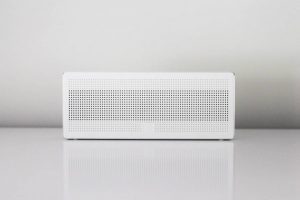In the depths of summer, it’s hard to imagine a world without electricity. We rely on it for so much—from much-needed air conditioning and refrigeration to all our favorite diversions. But the hottest months of the year can mean an uptick in electricity consumption as we use a variety of power-intensive appliances to keep our homes habitable. This can lead to a higher utility bill as well as a larger carbon footprint, depending on your electricity source.
Thankfully, there are ways to reduce your electricity usage during the summer without compromising on comfort. Use these tips and tricks to save some money, reduce the strain on your area’s electrical grid, and help the planet while you’re at it.
Shut out the sun
Open your windows to cool air at night, then close and cover them during the day to keep sunshine and hot air outside. Regular curtains might not do the trick—if the sun is still seeping in, invest in blackout curtains or hang heavy blankets against sun-facing windows.
Manage interior airflow
Install a fan in an attic or top-floor window and position it to blow outwards. Then open any doors or vents that can increase airflow to the attic. The hot air in your house will rise and get pushed outside where it belongs. You can also use the built-in fans in your bathroom or above your kitchen stove to suck hot air out of those rooms. These fans use way less electricity than even the smallest air conditioners.
[Related: How to build a home that stays cool without AC]
Isolate any heat you can
Turn off your oven and any unnecessary electronics that produce heat, like lamps with incandescent bulbs. This will help you use less power while also avoiding the warmth they can add to your living space. If you have a grill or cooking fire pit outside, use it, but if you must turn on the oven or stove, isolate its ambient heat by closing your kitchen off from the rest of your home. This can be as simple as closing some doors, setting up a privacy screen, or hanging a heavy blanket over any open areas. If you go for that last option, we recommend nailing the cloth up like you’re hanging a painting (the wood that forms the side of any opening should continue straight up to the ceiling)—tape can strip the paint off your walls.
Work smarter to save money
Many of us spend the workday tied to our electronics, whether we’re at home or in the office. To avoid using excess electricity, only charge up and run devices when you need to do so for the task at hand. Practice these tricks to stay productive and reduce your power usage this summer:
Leave your home dark and powerless
If you’re heading into the office, turn off everything you can at home before you leave. There’s no point leaving lights, fans, a television, or a desktop computer running when you aren’t there to use them. Power down or simply switch off these electronics when you leave the house, or set them to turn off automatically after a certain amount of time. Motion-sensing lights and other smart appliances can help streamline this process.
Stay in one room
If you’re working from home, the key is to create a home office—and stay there. Concentrating your workday in one room lets you limit your electricity usage to that space: you’ll only need one fan, one lamp, and so on. If you’re working on a laptop computer, try not to keep it plugged in at all times. Instead, let the battery life carry you through the day until you need to charge again.
Energy efficiency is also spending efficiency
Plenty of us use electricity even when we don’t intend to. This includes filling wall outlets and power strips with plugs we don’t need, letting the conditions outdoors seep inside through gaps we can’t see, and using energy-hungry appliances. Slashing your electricity bill and shrinking your carbon footprint may come down to simply making your living environment more energy-efficient.
[Related: Making buildings energy efficient just got harder]
Empty your outlets
Unplug anything you aren’t using. Even empty phone and laptop chargers draw a small amount of electricity from the outlets they’re plugged into—and the same goes for your toaster, kettle, video game console, and more. It adds up!
Audit your home’s structural features
If your home feels chilly in the winter and hot in the summer, it may have small structural imperfections that are letting the elements outdoors sneak inside. Gaps around your windows, uninsulated walls, and other small openings can all have this effect. Consider investing in a home energy audit to gauge how you can avoid wasting electricity on climate control measures that aren’t properly sealed inside.
Dry your clothes outdoors
Clothes dryers use a huge amount of electricity. In fact, they can consume as much power as a fridge, a washing machine, and a dishwasher combined. Summer is the perfect time to forego your clothes dryer and hang your laundry outdoors to dry instead. Let the hot sun and fresh air do their thing, and save money while you’re at it.





